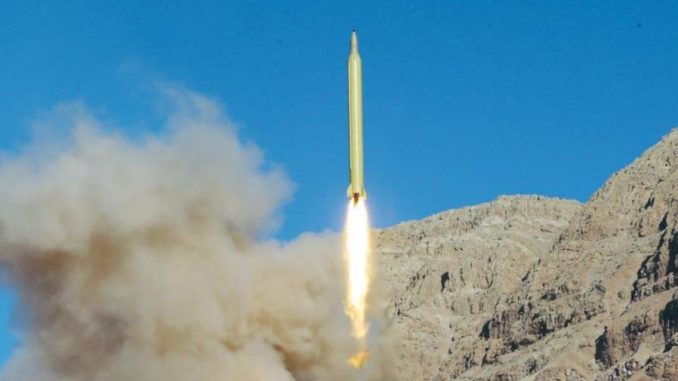
While Washington would have us all believe that Iran and its leadership is one of the most evil nations on earth (along with Syria, Russia, North Korea and China) as you can see here in this recent statement about Saudi Arabia from Donald Trump:
“The world is a very dangerous place!
The country of Iran, as an example, is responsible for a bloody proxy war against Saudi Arabia in Yemen, trying to destabilize Iraq’s fragile attempt at democracy, supporting the terror group Hezbollah in Lebanon, propping up dictator Bashar Assad in Syria (who has killed millions of his own citizens), and much more. Likewise, the Iranians have killed many Americans and other innocent people throughout the Middle East. Iran states openly, and with great force, “Death to America!” and “Death to Israel!” Iran is considered “the world’s leading sponsor of terror.”
On the other hand, Saudi Arabia would gladly withdraw from Yemen if the Iranians would agree to leave. They would immediately provide desperately needed humanitarian assistance. Additionally, Saudi Arabia has agreed to spend billions of dollars in leading the fight against Radical Islamic Terrorism.” (my bold)
It is interesting to see that, in a statement from Washington about Saudi Arabia, a nation with close links to al-Qaeda and the attacks of September 11, 2001, Iran is touted as the world’s leading sponsor of terror. It is also interesting to note that Washington would rather further distort the geopolitical situation in the Middle East by further arming Wahhabist Saudi Arabia (to the tune of $100 billion) and vilifying Shia Iran, two of the most influential military powers in the region.
Let’s look at reality for a moment. In a much ignored statement by Iran’s Foreign Minister Mohammad Javad Zarif from early 2018, we find the following framework for Middle East stability:
“The objective of a strong region — as opposed to a quest for hegemony and the exclusion of other actors — is rooted in recognising the need to respect the interest of all stakeholders. Any domineering effort by one country is not only inappropriate but essentially impossible: those who insist on following that path create instability. The arms race in our region is an instance of this kind of destructive rivalry: siphoning vital resources into the coffers of arms manufacturers has contributed nothing to achieving peace and security. Militarism has only served to fuel disastrous adventurism.” (my bold)
He goes on to note that there has been a long history of a “dialogue deficit” among the major stakeholders in the region which has led to political instability. If a dialogue were to be opened, all of the nations in the Middle East/Persian Gulf region would realize that they have aspirations and hopes, fears and concerns that they all share in common. Once dialogue is opened, the nations in the region could eventually create a commitment to non-aggression among themselves and eliminate the need for an arms race.
Here is another quote from Javad Zarif from October 2017 regarding Iran’s relationship with Saudi Arabia:
“There is a willingness for rapprochement on both sides, and we are willing to talk to Saudi Arabia about our difference. We do not believe that Iran and Saudi Arabia should have the type of relationship they have right now…
We believe the posture in the Persian Gulf by Saudi Arabia is not a positive one, (like) the policies they pursue against Qatar. The concepts they are using to muddy the waters, policies that have brought unfortunate disastrous consequences for our region, cannot be justified by these smokescreens of exporting revolutions.”
In recent remarks from Iranian Foreign Ministry spokesman Bahram Qassemi who is responding to Washington’s recent comments on the links between Iran and terrorism:
“Today the country’s (United States) officials are explicitly, blatantly and with an unprecedented shamelessness promoting a new pattern of defending human rights based on the size of the arms contracts they sign with others, under the banner of deceptive humanitarian slogans and human rights outcries…
To this end, the US officials give the green light to some of their anti-human allies to slaughter millions of innocent people including women and children in some regional states, to bring them years of drought and disease, and to bomb their schools, hospitals, and their wedding or mourning ceremonies with cutting-edge fighter jets.”
Here is a quote from Iran’s Prime Minister Hassan Rouhani regarding Iran’s relationship with its Gulf region neighbours from March 2018
“When it comes to regional security arrangements, we are ready to talk to our neighbours and friends, without the presence of foreigners…We are, have been and always will be good neighbours.
We don’t need foreigners to guarantee the security of our region.”
In closing, let’s take a look at some of the major arms sales during 2018 by Washington (i.e. sales greater than $100 million) to its Gulf region allies as reported on the Defense Security Co-operation Agency:
In addition, there are smaller sales to Oman, Kuwait, Bahrain and Iraq that didn’t make the $100 million cutoff.
Given this information, who is it that is really creating a geopolitical quagmire in the Persian Gulf region? Can we really blame Iran for developing weapons that can protect it from the products of America’s military-industrial complex? It certainly appears that Iran is at least making overtures to its neighbours that would lead to a lasting stability in the region, a story that receives almost no coverage in the Western media. Washington’s sale of $100 billion worth of arms to the Saudi royal family and its sales to other Gulf nations is going to accomplish one thing – it is going to make Iran’s dream of a Gulf region that is independent of outside meddling a near impossibility.
Click HERE to read more from this author.
You can publish this article on your website as long as you provide a link back to this page.

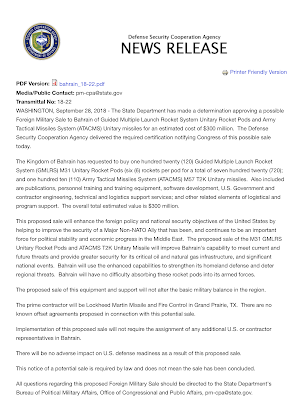
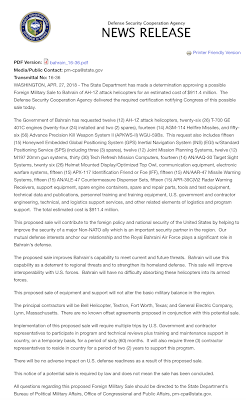
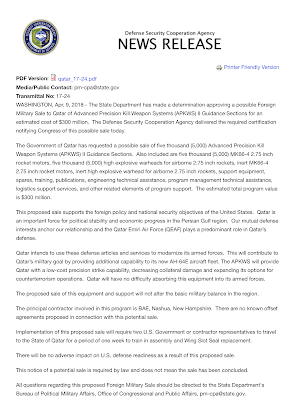
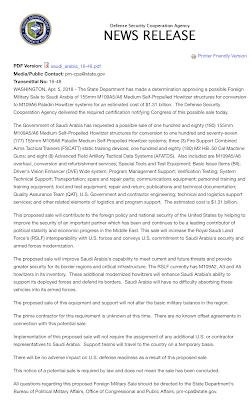
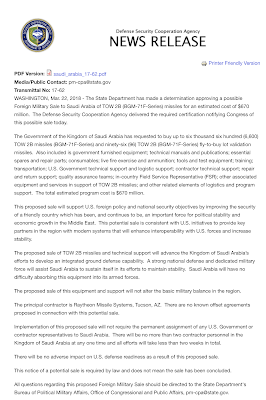
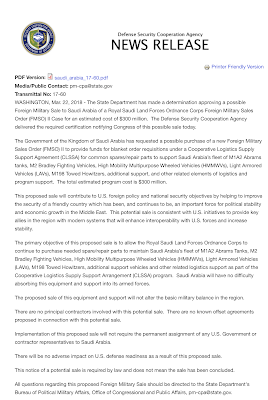
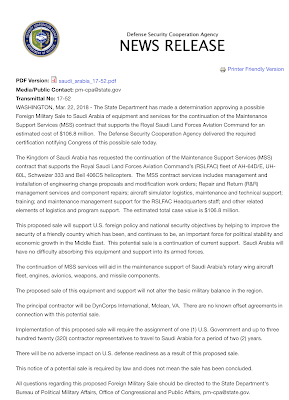
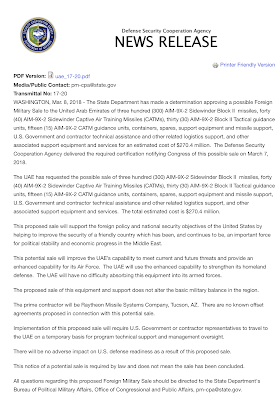
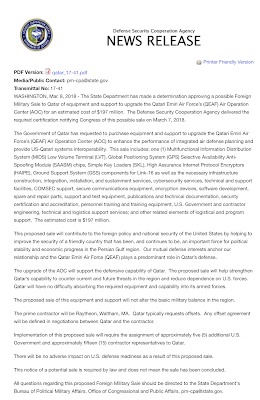
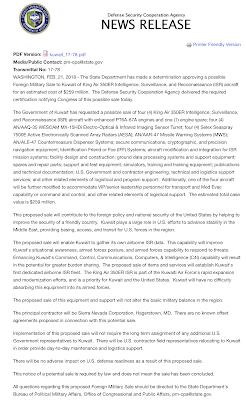
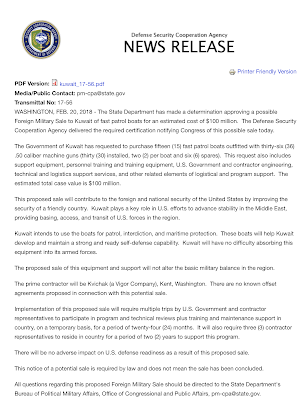
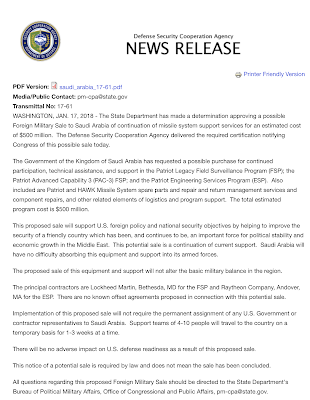
Be the first to comment